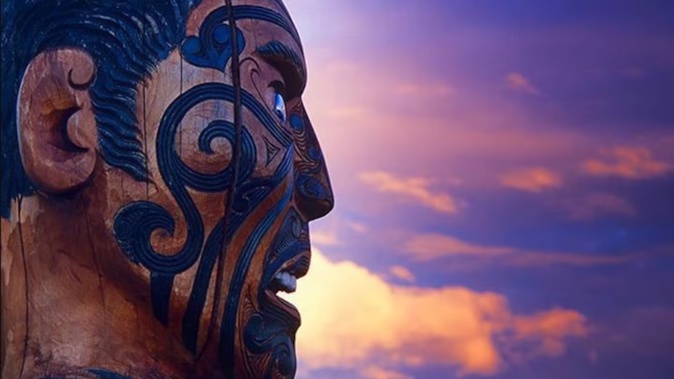

The parents of a pre-teen boy who has attended full immersion te reo Māori schooling since he was 3 have fought over whether he should continue his education at the kura or transfer to a mainstream school.
His father wants the boy, whose first language is te reo Māori, to move to a large state secondary school when he begins Year 9 in 2025, citing its “excellent academic record” and the many clubs and interest groups available.
But his mother wants the boy to remain at his school, a full immersion kura that goes to Year 13. She has argued their son is happy at the school and it supports his emotional, spiritual and academic development.
After the parents failed to agree on the boy’s schooling, the Family Court stepped in to decide for them.
Judge David Burns’ reserved judgment was publicly released this week and in it, he said the contrast between the parents’ proposals was stark.
But at the heart of the case were the views of the boy, who expressed he wanted to remain at the kura.
The judgment, which suppresses the family’s details, stated Judge Burns presided over a three-day Family Court hearing in March to consider the family’s parenting orders, the location of the boy and his schooling.
He made orders relating to his schooling to the conclusion of Year 8, but declined to rule on his secondary education.
Instead, Judge Burns set in motion a process where the parents were to consult each other on the issue of high school and to attend mediation if they could not reach an agreement.
After completing the process but failing to reach an agreement, they returned to the Family Court in August for another hearing before Judge Burns.
Judge David Burns has decided the fate of the boy's schooling. Photo / 123rf
“I was disappointed to see the parents could not resolve this issue in the interests of their son,” he said in the recent judgment.
However, the judge said he went on to give careful thought to their proposals.
The father argued the state school offered more options for his son that would enable him to pursue a wide range of choices.
He submitted the school has an excellent academic record and he was concerned about his son’s academic achievements at the kura.
While the father acknowledged the proposed school was large, he believed the boy would cope with the change of environment and said it had good support mechanisms in place.
He was concerned the number of children at the kura diminished as they got nearer to Year 13, and may reduce to only one or two.
The father believed his son would be able to continue to pursue his knowledge of te reo at the state school.
“He is strongly of the belief that the long-term outcome will be much better for [the boy] in a state secondary school such as [the proposed school]. He contends that it will be good for his social and academic development.”
The father said his son had expressed “dissatisfaction” with the kura he attended and believed the boy’s views expressed to the lawyer representing him, being that he wanted to remain at the kura, were influenced by his mother.
But the mother maintained his views were genuine and she had not influenced him in any way.
“She says that if [the boy] was expressing a clear view to attend [the proposed school] she would support that, but that he has given considerable thought to what he wants and that is to remain at his current school,” the judgment reads.
She argued he was happy at the kura, where he was in a class with fewer than 10 pupils.
He was familiar with all the teachers and students and was doing well academically and was involved in several sports.
She said the kura supported the boy’s emotional, spiritual and academic development and he was not suffering or experiencing any detriment in attending a much smaller school.
The judgment says she believed 780 Year 9 students were enrolled at the proposed state school, which she described as a significant contrast.
“She says that [the boy] is concerned about being one of many whereas he stands out in his current school.”
Referring to a professor’s expert advice to the court that stated eight years of full immersion would cement the boy’s knowledge of te reo, the mother pointed out he had had seven years of full immersion.
One more year would be in his best interests and if he expressed an interest in transferring down the track, she would support that.
After considering the parents’ proposals, Judge Burns ruled the boy would remain at the kura.
He said it was consistent with what the boy wanted and with the professor’s expert opinion.
The judge pointed to the boy’s first language being te reo Māori.
“He will struggle in a large secondary school where the main language is English. I consider his English needs to get to a higher level than it presently is before attending and making the transition into [the proposed school].”
The judge said the boy’s happiness and wellbeing trumped any academic concerns and he will probably transition naturally to mainstream schooling as he gets older and the number of pupils reduced at the kura.
“I accept that there is some benefits in starting at the [beginning] of Year 9, but they are not of sufficient weight to justify starting in Year 9. I am confident that he will be able to start at [the proposed school] say, at the beginning of Year 11 and cope.
“There will have to be adjustment, but the change would not be insurmountable. By that stage, his te reo should be cemented in place and he will have the benefit of two languages for the rest of his life.”
Tara Shaskey joined NZME in 2022 as a news director and Open Justice reporter. She has been a reporter since 2014 and previously worked at Stuff covering crime and justice, arts and entertainment, and Māori issues.

Take your Radio, Podcasts and Music with you









